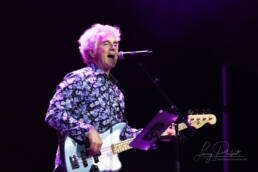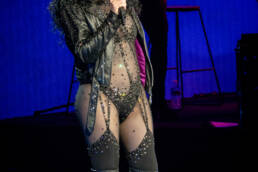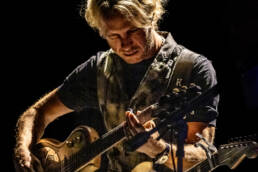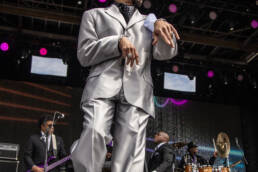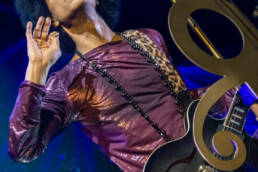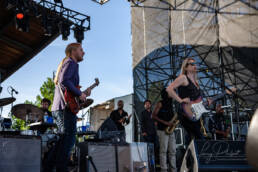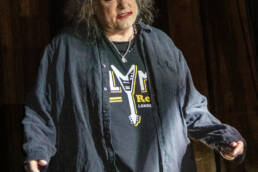America: Harmonies Born from Wanderlust
Imagine three young dreamers, sons of American airmen, kicking around London in the late ‘60s, their ears buzzing with the Beatles and their hearts aching for a sound they could call their own. For America—the band of Gerry Beckley, Dewey Bunnell, and Dan Peek—music wasn’t just a career; it was a map, a way to navigate the rootlessness of military brat life and pin down an identity amid constant upheaval. Their primary motivator? A shared love of melody and a restless urge to weave their transatlantic upbringing into songs that felt both vast and intimate, like the landscapes they’d glimpsed from airplane windows. It was this alchemy of harmony and horizon that launched them from England’s pubs to America’s airwaves.

The Roots of a Restless Trio
America’s story begins in the churn of military bases. Gerry Beckley (born September 12, 1952, Fort Worth, Texas) grew up bouncing between Virginia and England, his dad stationed at RAF West Ruislip. A prodigy on piano and guitar, he was harmonizing in church choirs by his teens. Dewey Bunnell (born January 19, 1952, Harrogate, Yorkshire, England) was another Air Force kid, raised in California and England, where he picked up guitar and a lonesome drawl. Dan Peek (born November 1, 1950, Panama City, Florida) completed the trio, his childhood split between bases in Japan and Greenland, his soul steeped in folk and gospel.
They met at London’s Central High School in 1967, bonding over Crosby, Stills & Nash and a knack for three-part harmony. By 1969, they were gigging as an acoustic trio, hammering out originals in pubs and basements. A demo caught the ear of producer Ian Samwell, and in 1970, they signed with Warner Bros. Naming themselves “America”—a cheeky nod to their homeland from abroad—they dropped their self-titled debut in 1971. “A Horse with No Name” wasn’t even on it until a reissue, but it rocketed them to fame, a fluke born of grit and grace.
A Career of Soft Rock and Soul Searching
America’s career is a winding road of hits, heartbreak, and reinvention. The original lineup—Gerry Beckley (vocals, guitar, piano), Dewey Bunnell (vocals, guitar), and Dan Peek (vocals, guitar, keyboards)—defined their golden era. America (1971) went platinum, followed by Homecoming (1972) and Hat Trick (1973). Produced by George Martin from Holiday (1974) onward, albums like Hearts (1975) and Hideaway (1976) kept them atop the soft-rock heap. Peek’s 1977 exit—spurred by born-again Christianity and burnout—shifted the dynamic, but Beckley and Bunnell pressed on as a duo, scoring with Harbor (1977) and Silent Letter (1979).
The ‘80s brought View from the Ground (1982), with “You Can Do Magic” reviving their chart mojo. Lineups flexed—drummers like Willie Leacox and bassists like David Dickey anchored tours—but it was always Beckley and Bunnell’s show. Side ventures popped up: Beckley’s 1995 solo Van Go Gan, Peek’s Christian albums like All Things Are Possible (1978), Bunnell’s quieter detours. They’ve kept America alive into 2025, with Lost & Found (2015) and archival releases like Heritage (2019), proving their harmonies endure.
Relationships with artists? They’ve toured with Beach Boys, jammed with James Taylor, and leaned on Martin’s Beatles cred. Beckley dated actress Tuesday Weld in the ‘70s; Peek’s faith pivot strained band ties. On screen, their music’s graced The Sopranos, Breaking Bad, and The Simpsons (“Riverside” in a campfire scene). They’ve done Austin City Limits and VH1’s Behind the Music. Awards? No Grammys, but America and Homecoming are multi-platinum, and they nabbed a Grammy nod for Best New Artist (1973). A Hollywood Walk of Fame star shines since 2012.
Here’s a rundown of their biggest hits:
- “A Horse with No Name” – Written by Dewey Bunnell, this 1971 enigma hit No. 1 on the Billboard Hot 100, a desert fever dream.
- “Ventura Highway” – Penned by Bunnell, this 1972 No. 8 breeze captures California’s pull.
- “Sister Golden Hair” – Crafted by Gerry Beckley, this 1975 No. 1 is pure soft-rock gold.
- “Riverside” – Co-written by Beckley, Bunnell, and Peek, this 1971 debut single cracked the Top 40.
Controversy on the Open Road
America’s sailed mostly smooth, but storms hit. Peek’s 1977 departure—fleeing rock’s excesses for Jesus—sparked fan dismay and tabloid chatter. His 2004 memoir, An American Band, aired gripes about band tensions, ruffling Beckley and Bunnell. In 1982, a rumored rift over “You Can Do Magic”’s pop shift irked folk purists, though it paid off. Peek’s 2011 death—liver failure at 60—reopened wounds, with some blaming his post-band struggles on old vices. Still, the duo’s dodged the sex-drugs-rock implosion of peers, their controversies more whispers than screams.
A Night in the Desert: Santa Barbara, 1972
Let’s drift to August 19, 1972, at Santa Barbara’s Arlington Theatre—a sweaty, 2,000-seat gem where America, fresh off “A Horse with No Name,” faced a hometown crowd (well, California-adjacent). Homecoming was brewing, and they were road-tight—Beckley’s falsetto gleaming, Bunnell’s acoustic strums crisp, Peek’s harmonies glue. They opened with “Riverside,” the room swaying like a riverbank. Mid-set, “Ventura Highway” debuted—Bunnell grinned as he sang “alligator lizards in the air,” a line inspired by a childhood road sign. Then, chaos: a power surge fried the PA during “I Need You.” Beckley, unfazed, leapt to an upright piano stage-right, pounding out an impromptu blues jam—Peek and Bunnell joined with handclaps, the crowd stomping along.
“It was like the universe tested us,” Beckley later told Rolling Stone. “We just rolled with it.” Fans rushed the stage, security scrambling, as the trio stretched the jam 15 minutes ‘til power kicked back. They closed with “Horse,” voices raw, audience hoarse. A bootleg floats online—“The Blackout Gig”—a testament to their knack for turning mishap into magic. Peek, still years from his exit, called it “the night we knew we’d made it.” It’s a story fans trade like treasure, a snapshot of America at their scrappy, soaring peak.
America’s tale is one of wanderers finding home in harmony. From London’s fog to California’s sun, Beckley and Bunnell (and Peek, for a time) spun a sound that’s outlasted decades. Catch them live in 2025—those voices still weave like they did in ’71, a soft-rock compass pointing ever onward.

